Your Startup Idea Probably Won’t Matter
Jul 07, 2020

5-min read
Many new entrepreneurs think that the success of their startup rests on the quality and uniqueness of their idea. It doesn't. It's the business that they plan and build around that idea that matters. Will Herman, co-author with Rajat Bhargava of The Startup Playbook, explains.
So let’s get something clear. An idea that turns into a startup isn’t just a passing thought. It’s the combination of the unsolved problem that you see in a market, and the solution you come up with to address the need created by that problem. It’s the hole you’re going to fill and what you’ll fill it with that we’re talking about. Problems aren’t sufficient to be the foundation of a company, even at the earliest formative stages, nor, conversely, are solutions without a real problem to be solved.
And I’m sorry to say that it’s highly unlikely you’ll have a unique idea or will come up with one. The world is loaded with really smart and observant entrepreneurial people. Often, these people are already working on implementing an idea similar to yours and may even have funding to accelerate their progress.
The good news is that none of that really matters. Sure, if you’re the hundredth person to have an idea to meet a need in a well-established market, it’s probably not going to turn out well for you. In most cases, though, after you’ve refined your idea and built a highly differentiated business around it, you can still create a successful company.
You Don’t Need a Great Idea
You don’t need a great idea. The secret is that it’s not great ideas that make great companies — it’s the excellent execution of a great business model that leads to success.
What do we mean by a business model? It’s everything you do to make a successful company. From the market you’re in to how you make potential customers aware of what you’re offering to how you sell your product or service and, ultimately, to how you make money. It includes how your company is funded and the team that you put together to make it all happen. It’s this complete business model that needs to be strong and differentiated from the competition, not just the idea that starts the whole process off.
Here are a couple of classic examples of the power of a solid business model.
Apple famously introduced its original iPod three years after the introduction of MP3 music players by a variety of other companies. By the time it came out, there were loads of good, solid, low-priced competitors, not to mention an incumbent in Sony with their Walkman series of music players. Yet as time has shown, Apple has been hugely successful in music players. (The iPhone has, of course, taken the mantle from the iPod.) It wasn’t the fact that Apple had a better product idea that made them win; it was their vastly superior business model. They knew that without a platform for music distribution (aka iTunes) that created an entire music experience, their competitors were merely products without an ecosystem. That ecosystem was the most important part of Apple’s winning business model — way more important than the idea of a music player.
Unique Idea + Poor Business Model = Failed Company
Companies with unique products and poor business models are not as well-known because, well, most of them have failed. But Kodak is a great example of a failed company. The company that basically invented compact, portable photography also created digital photography. Kodak had the idea to create a digital camera and developed their first prototype in 1975. They then released their first model to the public in 1995, long before any other major player was in the market. Still, they couldn’t make a success of it. Kodak’s business model was all about supporting their film business, and thus, they struggled to make a successful play in digital photography. Kodak went bankrupt in 2012. Great ideas can’t make it without good business models alongside them.
It’s best if you think of your idea as a starting point to building the business model — a first step in the journey of building your business. All you need in the beginning is an idea that’s good enough and that solves a real problem. Don’t worry if it’s not all-encompassing at first. That will come later.
On your way to your complete business model, you’ll first need to expand your idea and consider how you’ll bring it to life. You’ll answer questions like, “How will I turn my idea into a product? How will I get access to and excite customers? And, where will the idea lead me in the future?” You’ll start to think not only about the core of your idea, but the bigger, grander problem you’re trying to solve and how your solution to it will morph over time. That vision, the future of your idea, will be what you test with early, potential customers and ultimately, it will be the foundation of your business model.
Going From Idea to Business Model
Say you have an idea that the world needs cheap, disposable clothing. That’s it, the core of your idea. It’s your starting point. From there, you expand it and consider how you’ll develop it, get your initial prototypes created, determine who your early customers will be, and how you’ll market and sell your product. You might even think about ways to manufacture it and, ultimately, make money from it. And, that’s what starts turning your idea into something tangible — part of your business model.
Of course, all of this needs to be tested before you move forward. Simply put, you don’t have a clue if you can make disposable clothing, if anyone wants it, if you can get funding for it, or if you can even make money at it if you don’t formalize it and test it first. That happens as you build your business model.
As you turn your idea into a business model, it will morph and evolve. That is, as you can imagine, the point in formalizing the development of your business model—to make sure you’ve got it right. With each revision, you’ll make it a bit stronger, a bit better, and a bit more focused. It may even completely change as you understand your target customers and market better. That, of course, is way more powerful than any idea.
More on this topic, and many other perspectives on building successful startups can be found in my book, co-authored with Rajat Bhargava, The Startup Playbook. Super easy to read and chock full of startup wisdom. Written by founders for founders. Check it out.
About the Author

Will Herman
Will Herman is an entrepreneur, active angel investor, corporate director and startup mentor. He has started and managed five companies, resulting in two IPOs and two corporate sales. Will has also invested in over eighty startups, sat on the boards of twenty five and has advised over a hundred more. He is the author, with Rajat Bhargava, of The Startup Playbook.

